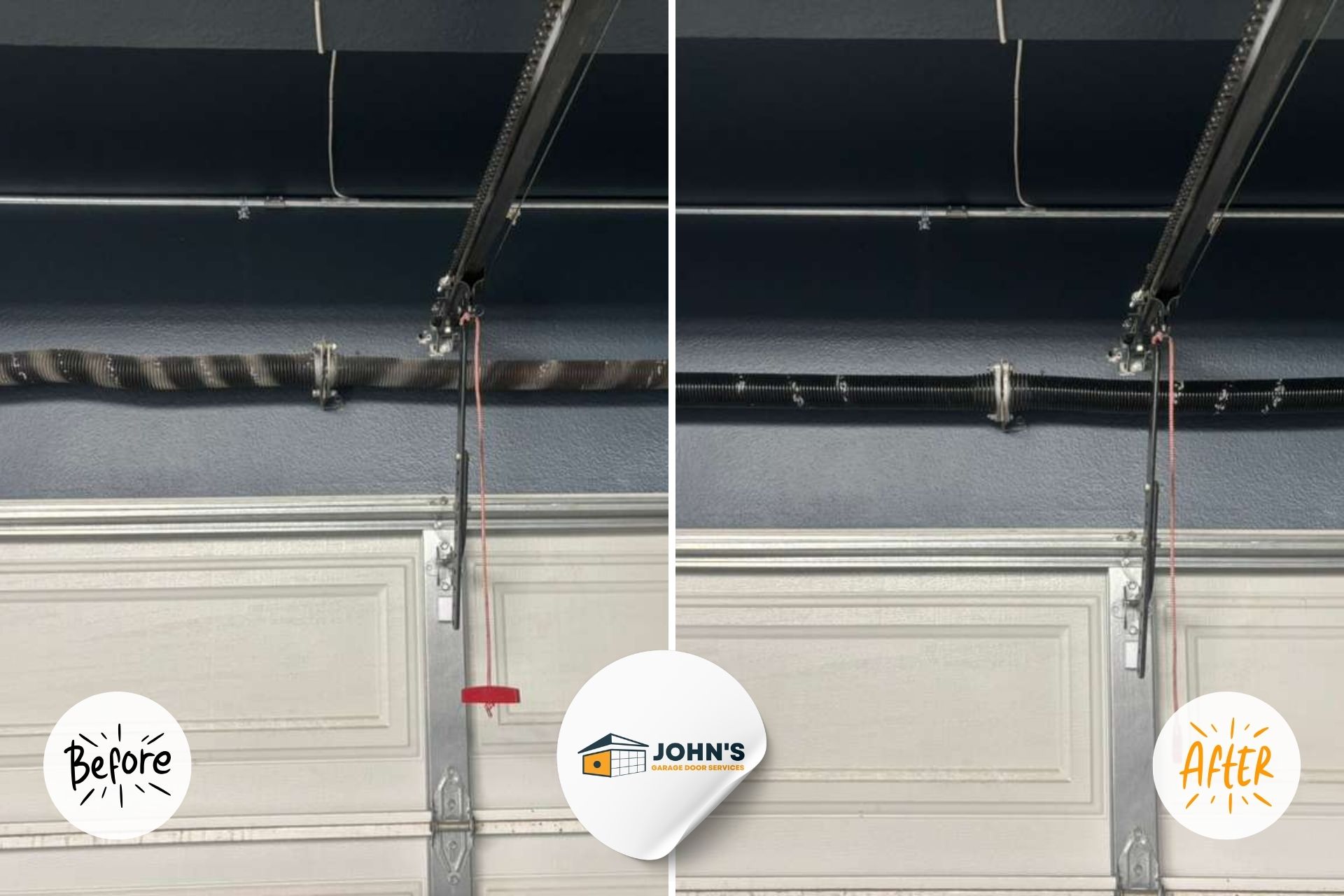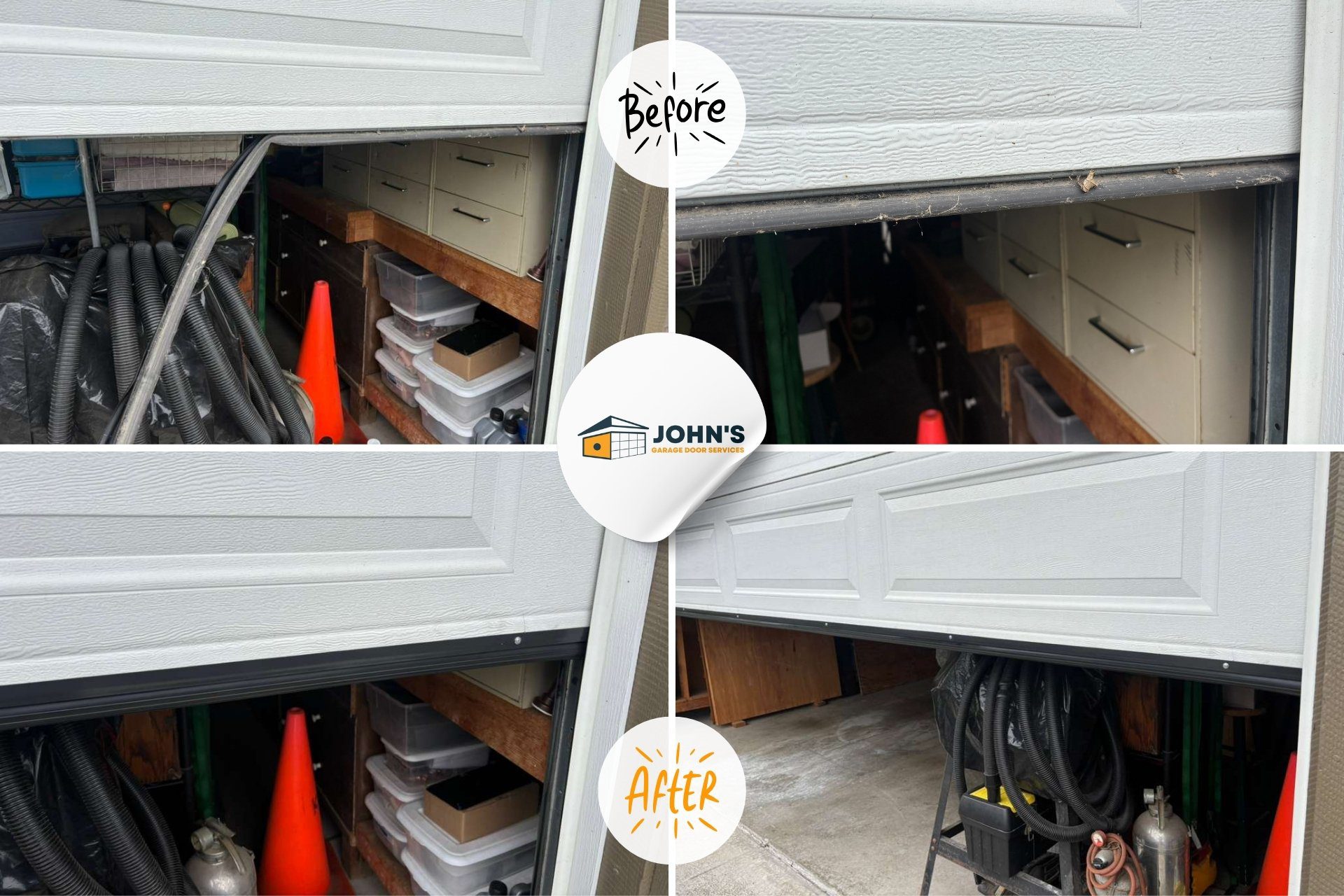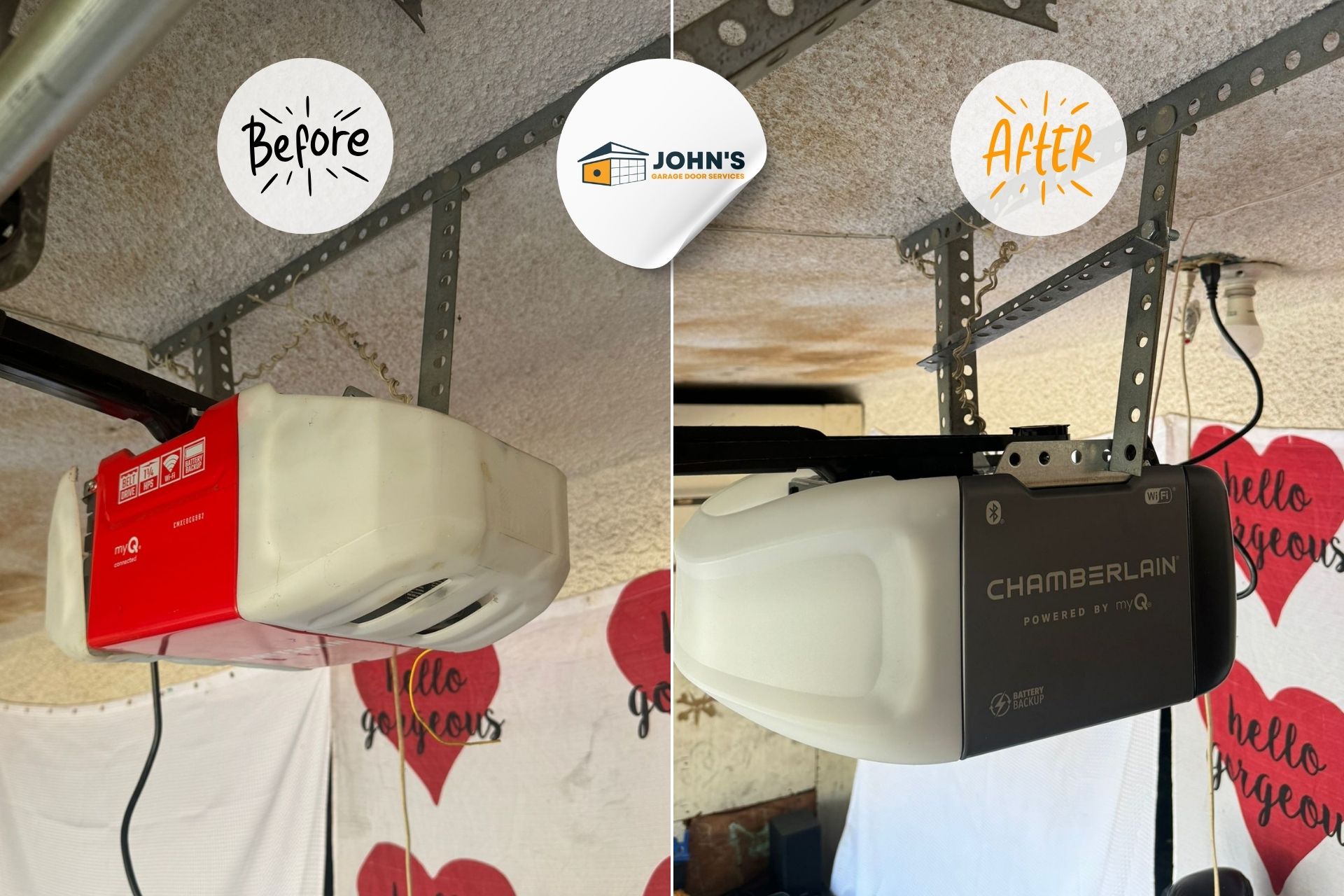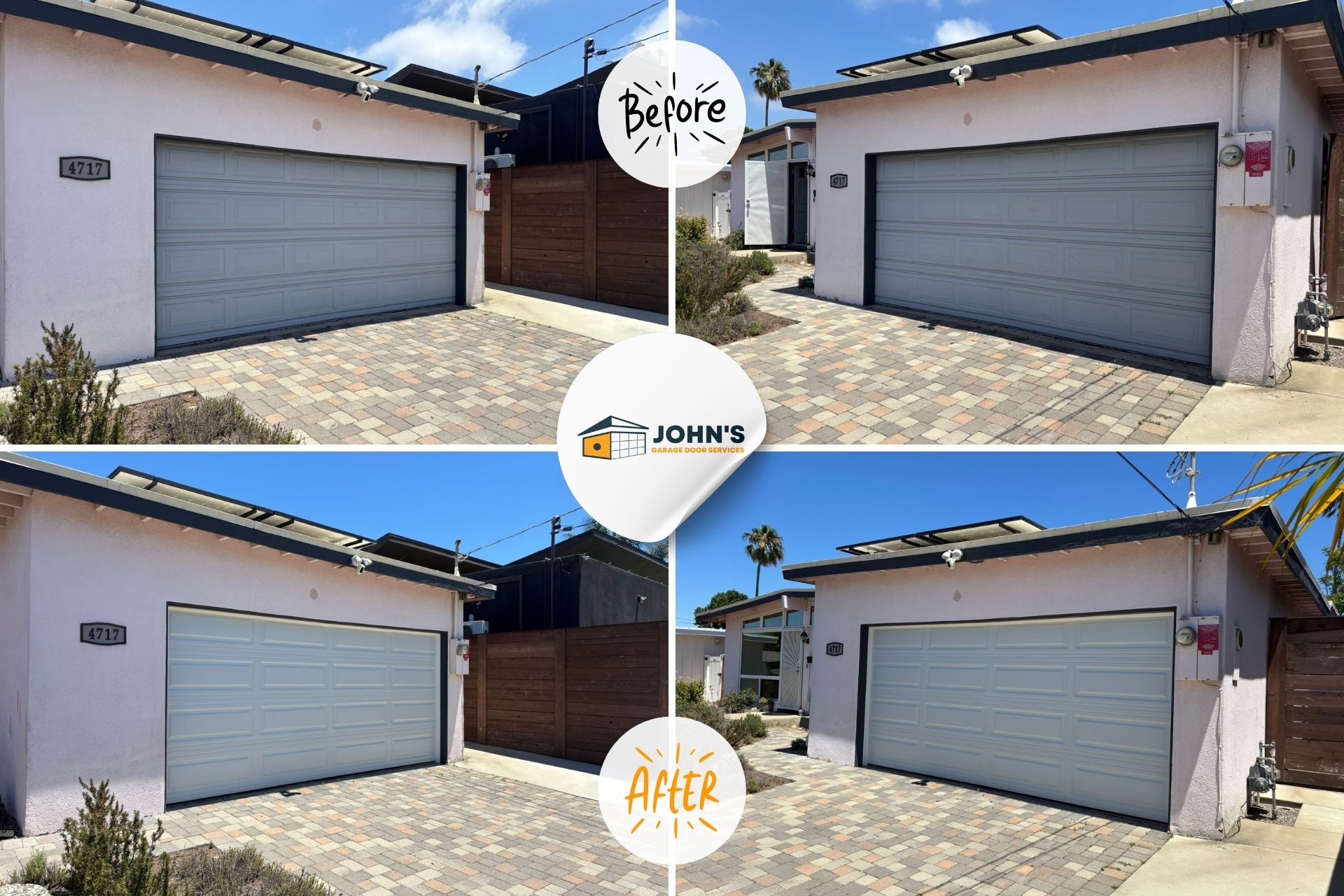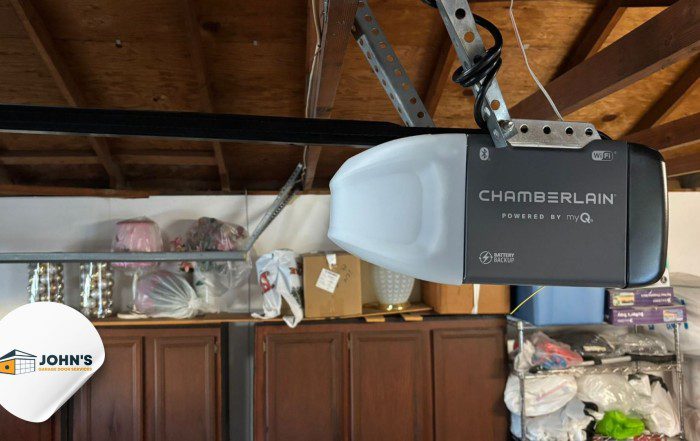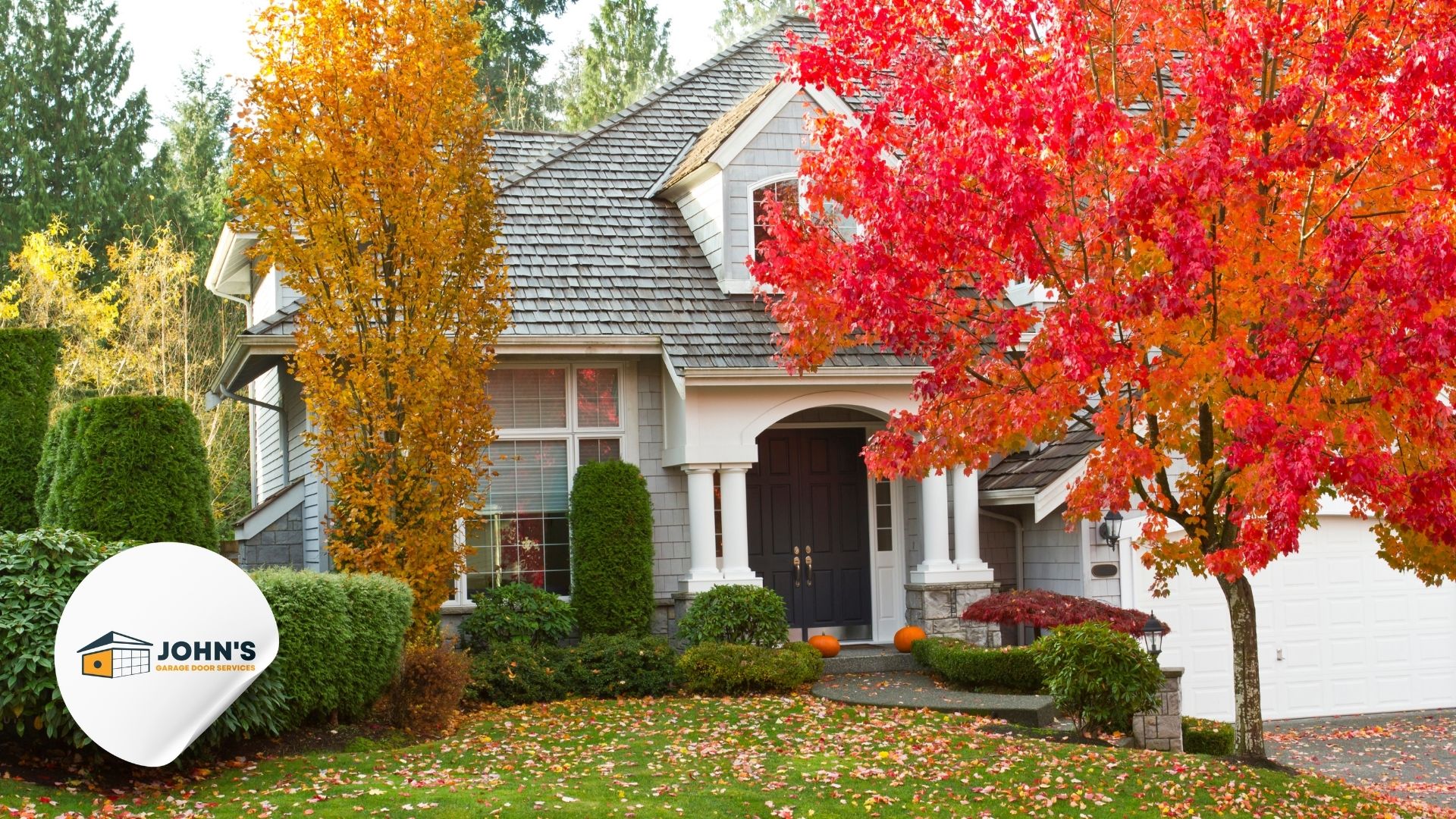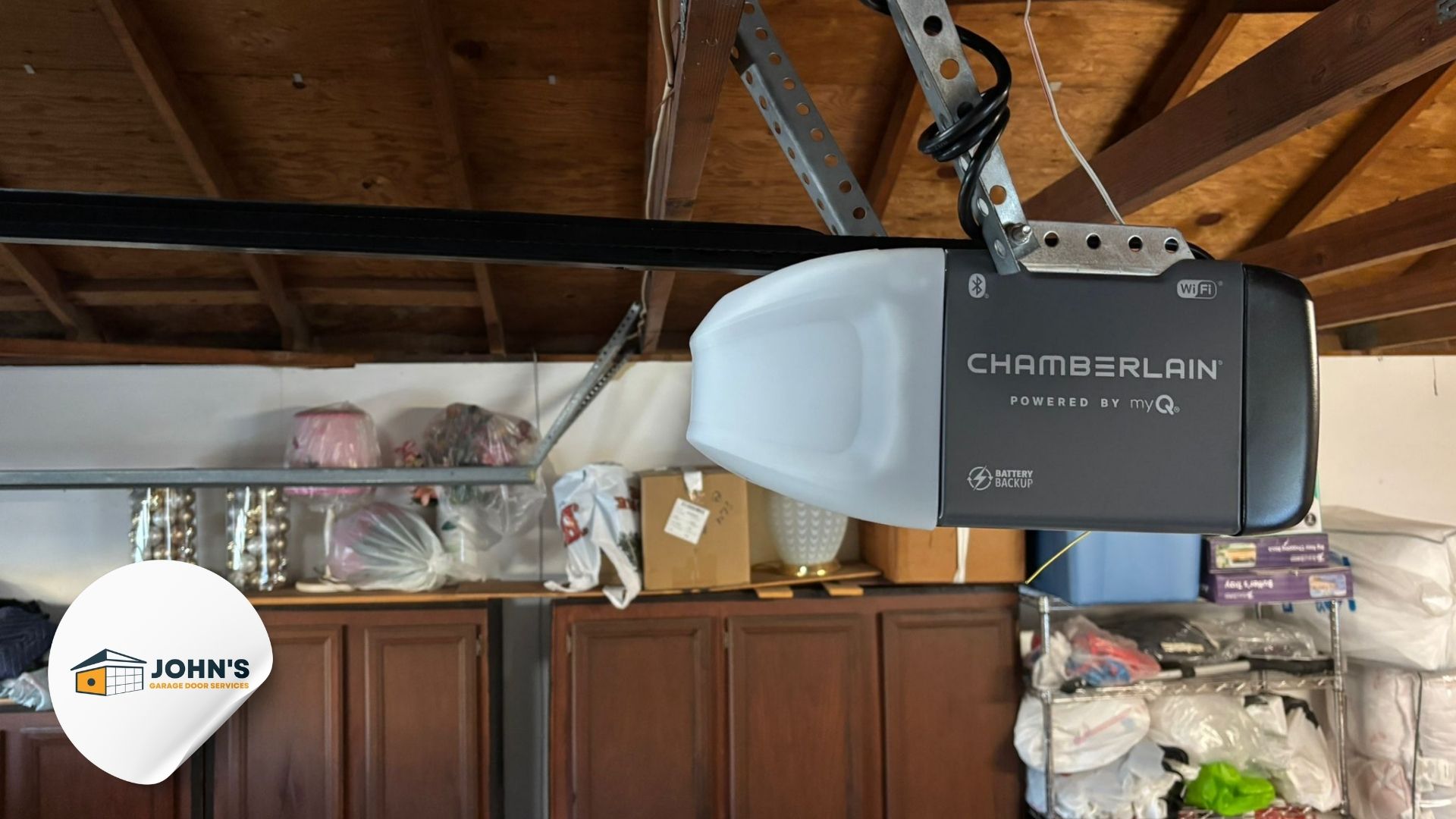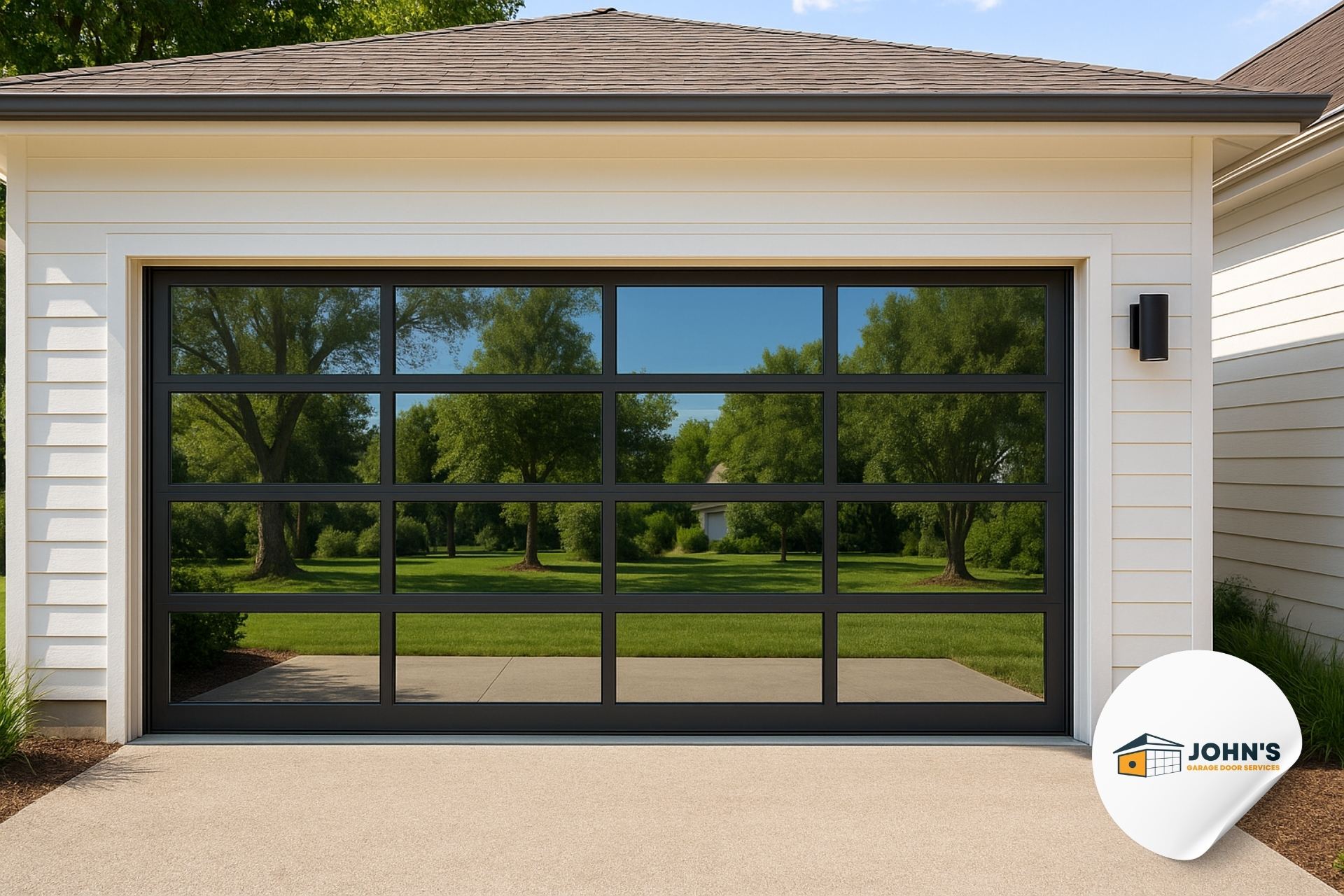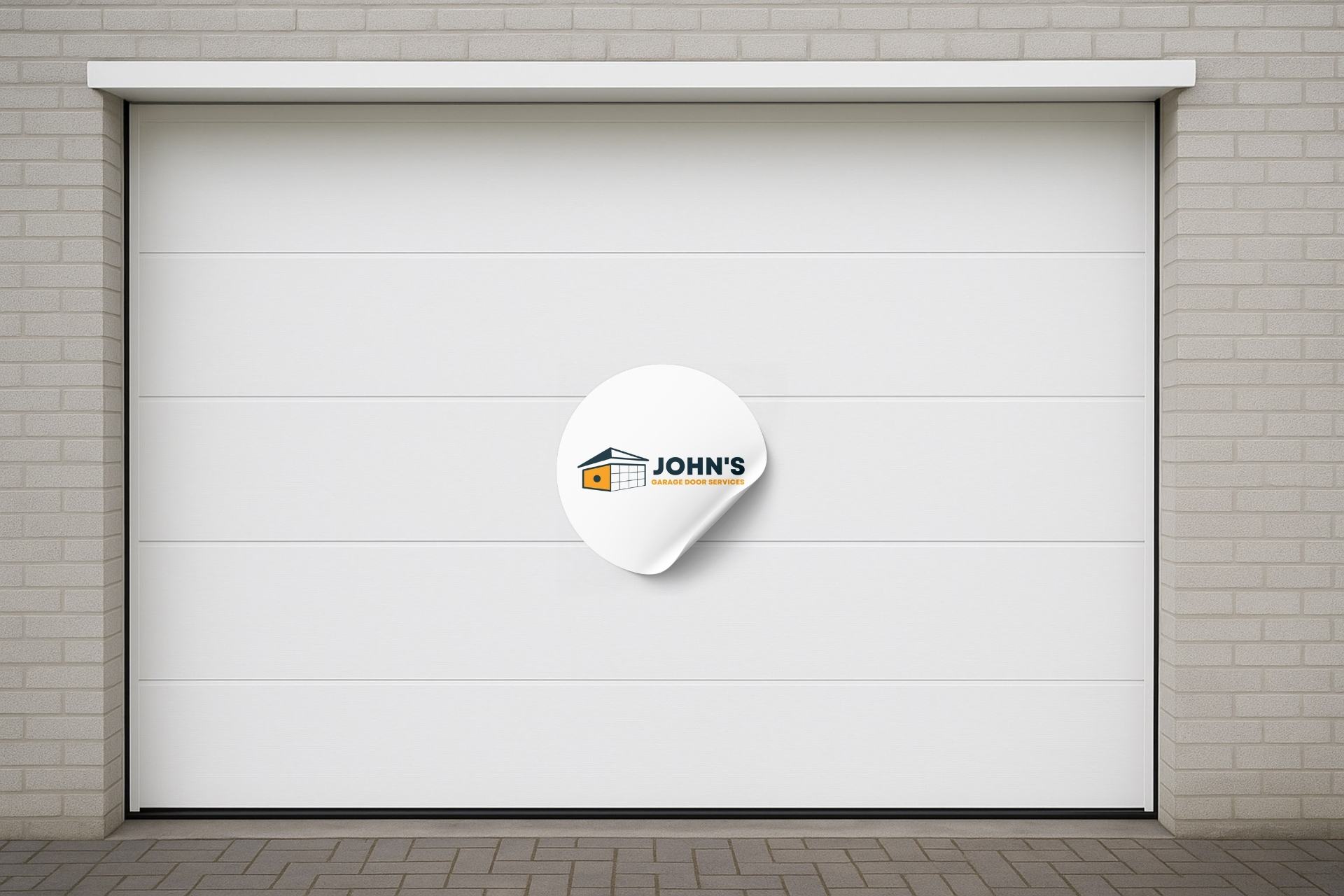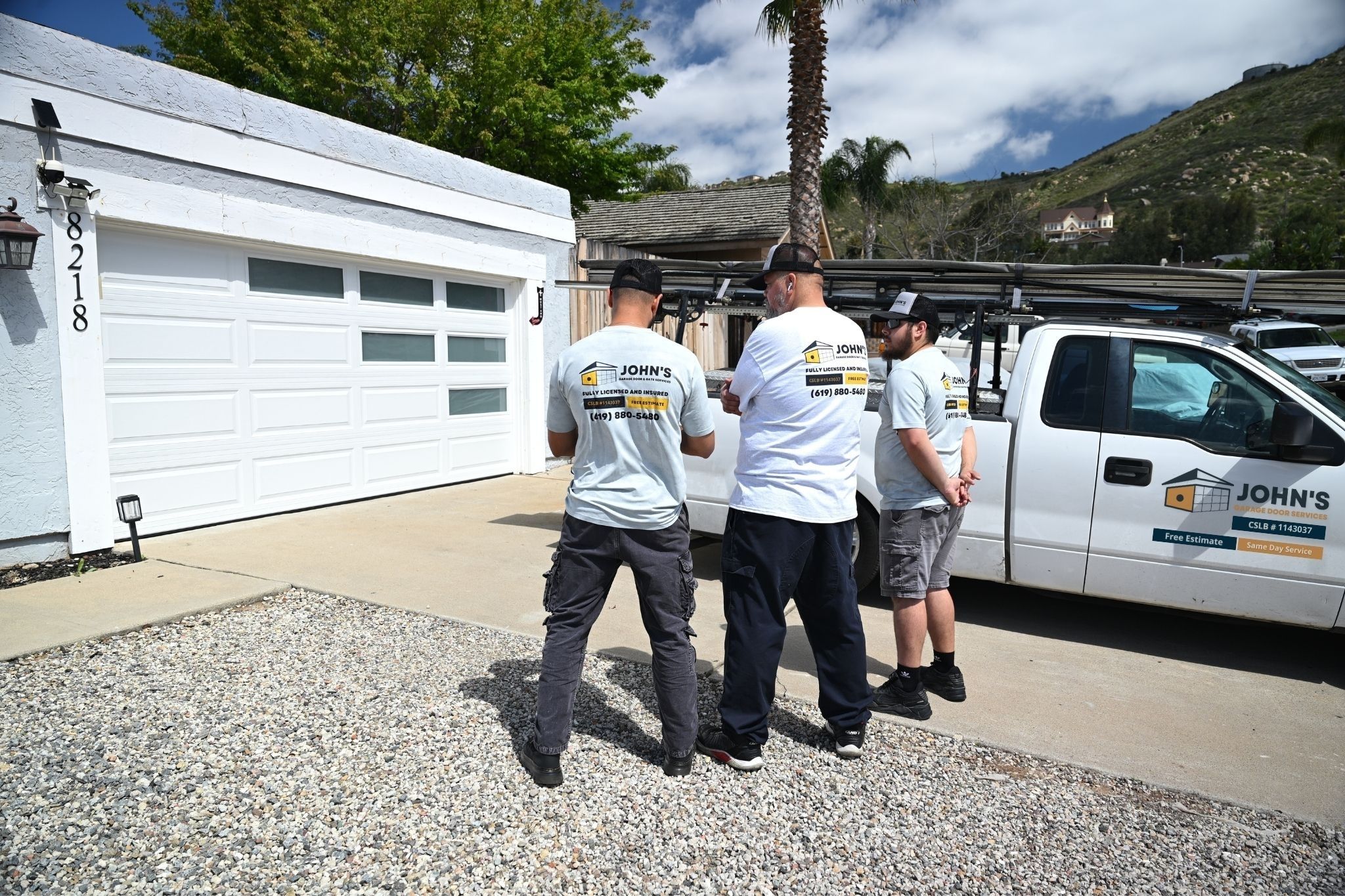
Garage door sensors are small but critical components of your garage door system. They prevent the door from closing when something, or someone, is in the way. When these sensors malfunction, your garage door may refuse to close or behave unpredictably.
Understanding the most common garage door sensor problems (and how to fix them) can save you time, stress, and an unnecessary service call. Here are the top issues homeowners face, and what you can do about them.
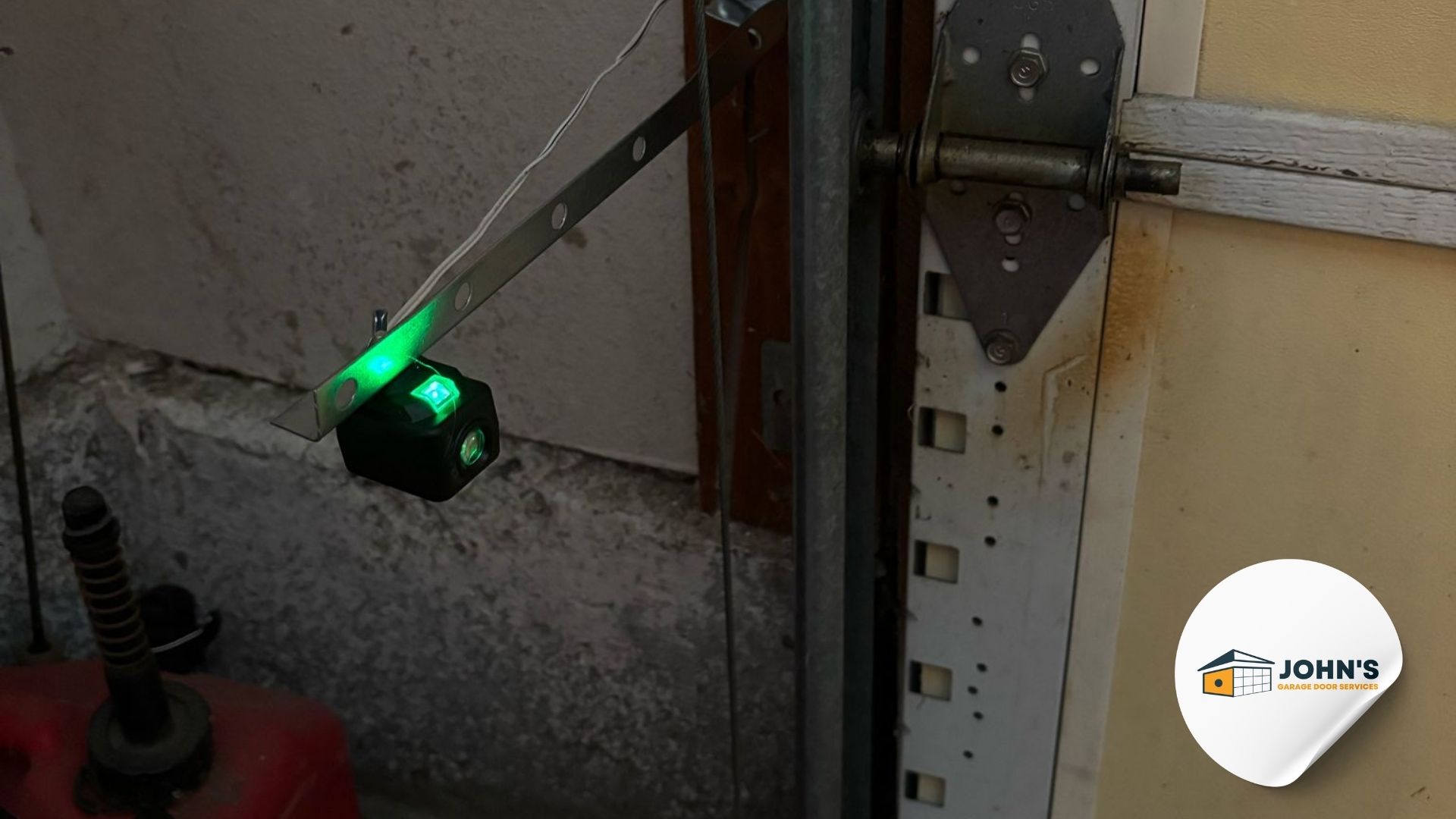
Dirty or Obstructed Sensors
1. Dirty or Obstructed Sensors
Problem:
Dust, spiderwebs, or other debris on the sensor lenses can block the infrared signal between them. When this signal is interrupted, the garage door won’t close.
Fix:
Clean both sensors with a soft cloth and a mild cleaner. Avoid scratching the lenses. Once they’re clean, test the door. If it closes properly, the problem was likely just dirt.
2. Misaligned Sensors
Problem:
Garage door sensors must be perfectly aligned with each other. If one is knocked out of place — even slightly — the infrared beam won’t connect, and the system will assume there’s an obstruction.
Fix:
Check the LED lights on both sensors. Most systems have a green light when aligned and a blinking or red light when misaligned. Gently adjust the sensors until both lights are solid. Tighten the brackets so they stay in place.
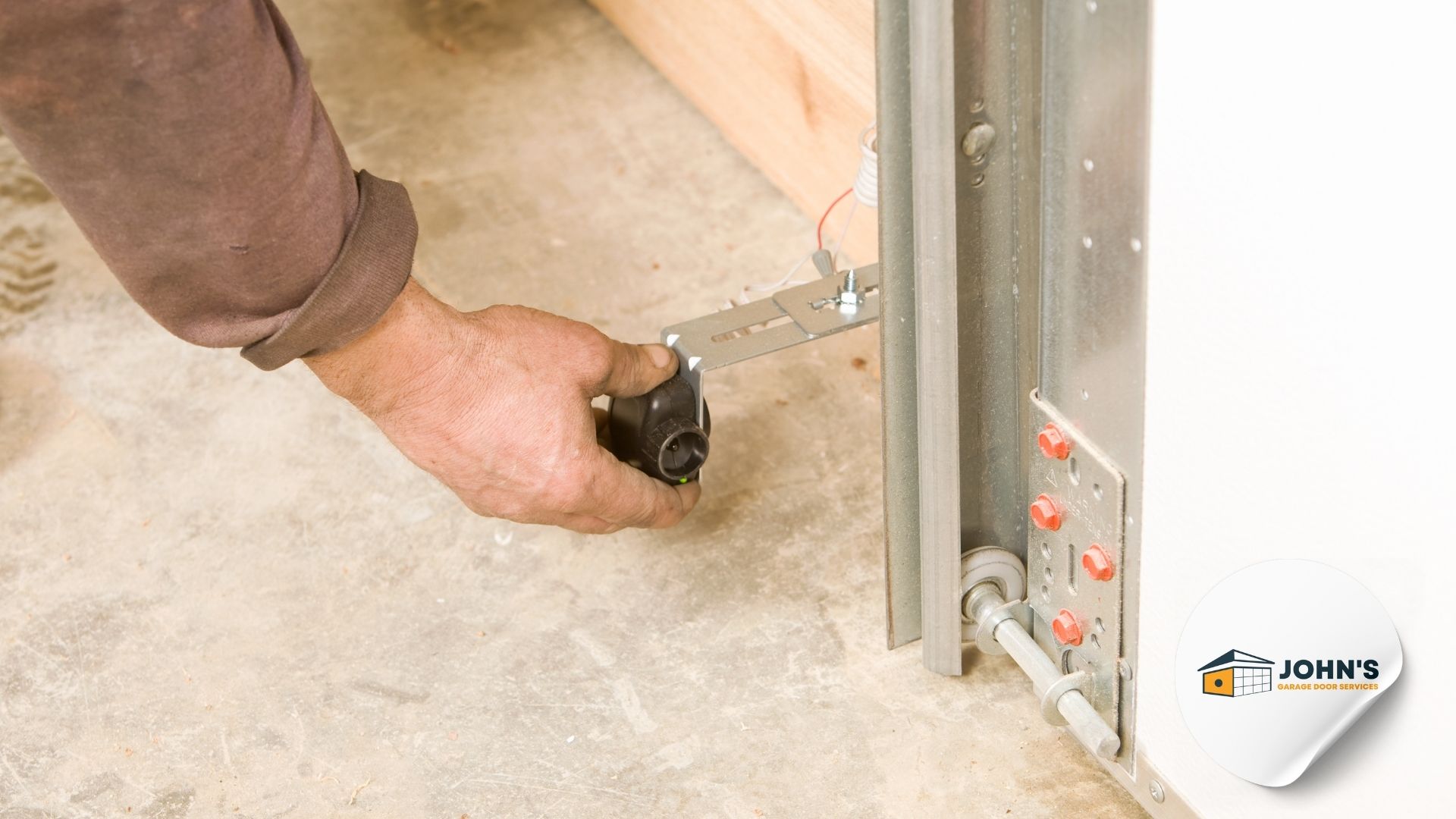
Misaligned Sensors
3. Loose or Damaged Wiring
Problem:
Wires connecting the sensors to the Garage Door Opener can come loose, fray, or break over time due to wear or vibration. This can interrupt the signal and prevent the door from closing.
Fix:
Turn off power to the opener for safety. Inspect the wiring for visible damage, corrosion, or disconnection. If you find a loose wire, reconnect it securely. Damaged wires may need to be replaced. If you’re unsure, call a professional.
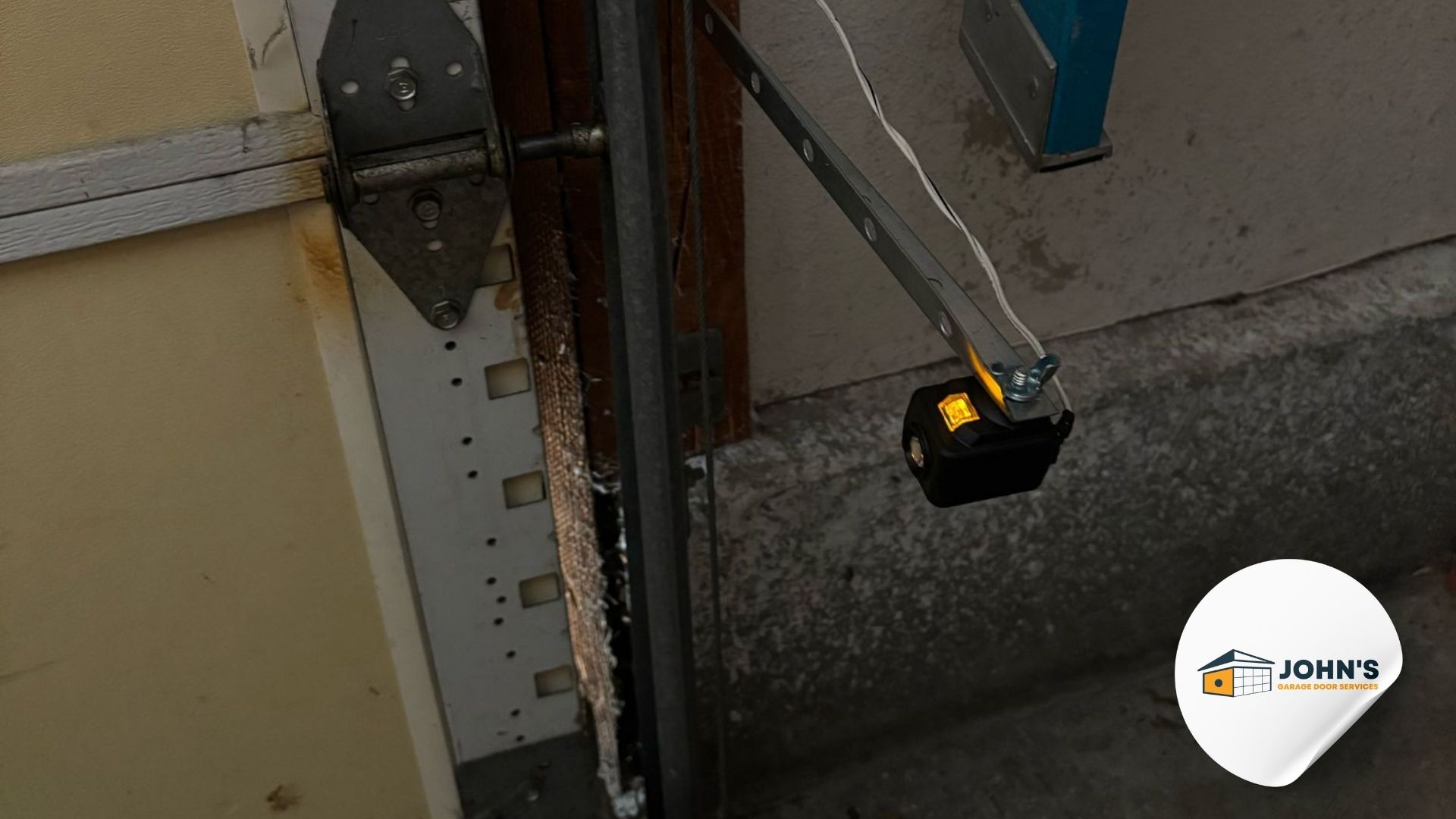
Loose or Damaged Wiring
4. Sunlight Interference
Problem:
Bright sunlight hitting one of the sensors directly can interfere with the infrared signal, causing the system to falsely detect an obstruction.
Fix:
Try shading the sensor with a piece of cardboard or adjusting its angle slightly. Some homeowners use small tubes or sun shields to block direct light. Avoid covering the lens completely.
5. Faulty Sensors
Problem:
Like any electronic component, sensors can simply wear out or stop working due to age or electrical issues. If you’ve cleaned, realigned, and checked the wiring but the problem persists, you may have a dead sensor.
Fix:
If your sensors are old, replacing them is often the most cost-effective option. Make sure to buy compatible replacements based on your opener’s brand and model. Or contact a garage door technician for help with installation.
Bonus Tip: How to Test If Your Garage Door Sensors Work
- Close the garage door using the wall control.
- As it begins to close, wave an object in front of the sensors.
- The door should stop and reverse immediately.
- If it doesn’t, your sensors are either misaligned or not working — and should be addressed immediately.
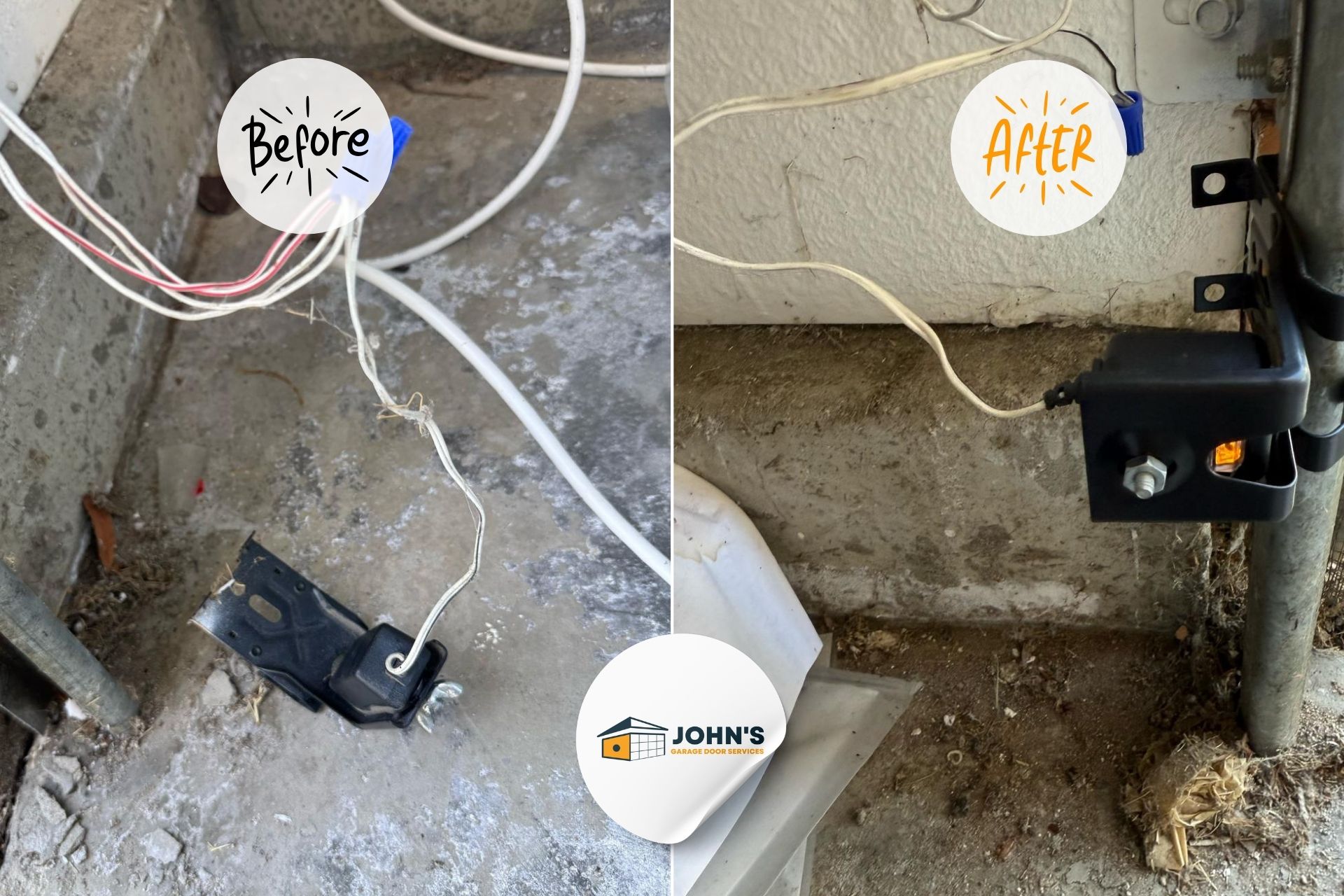
Bonus Tip How to Test If Your Garage Door Sensors Work
Don’t Ignore Sensor Issues
Garage door sensors are a vital safety feature. If they’re not working correctly, you risk injury, property damage, or being locked out of your garage. Luckily, many common sensor issues are quick and inexpensive to fix.
If you’ve tried these solutions and your garage door still won’t cooperate, call John’s Garage Door Services for fast, affordable service. Our local technicians can diagnose and fix sensor problems on the spot.
John Josef – 15 Years of Garage Door Expertise – John’s Garage Door Services, Locally Owned and Operated. We provide top-quality garage door repair, installation, and maintenance with a strong commitment to honest, reliable customer service.

